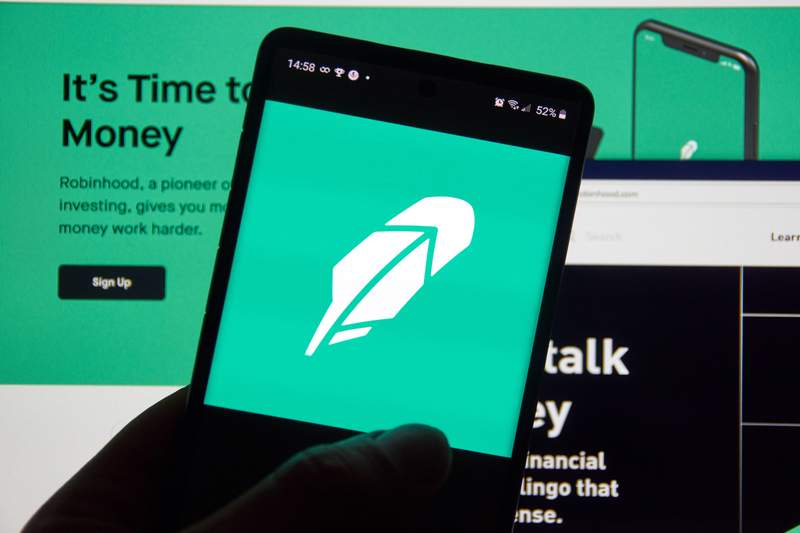By Geoffrey Smith
Investing.com -- The game is on again.
As of Friday, Robinhood – the trading app where much of the extraordinary action in heavily-shorted stocks is concentrated – is again allowing two-way flow, having stopped its clients from buying individual stocks such as GameStop (NYSE:GME) for a day on Thursday.
As a result, the so-called Meme Stocks are all sharply higher in premarket, as retail traders ramp up their buying again.
But Thursday’s events have put a sharp focus on one stock that isn’t even trading yet – Robinhood itself. The brokerage aims to go public this year, but it will first need to see how much reputational damage it can undo after forcing its clients to stop making what was, for many, their most profitable trade – squeezing GameStop.
The action was greeted with howls of outrage from its customers and drew condemnation from both Republican and Democratic lawmakers, none of whom ever saw a bandwagon they didn’t want to jump on.
In a blog post on Thursday, Robinhood had explained the move as a risk management issue:
“As a brokerage firm, we have many financial requirements, including SEC net capital obligations and clearinghouse deposits. Some of these requirements fluctuate based on volatility in the markets and can be substantial in the current environment.
“These requirements exist to protect investors and the markets and we take our responsibilities to comply with them seriously,” it added, with just a hint of self-righteousness.
The core of that argument is that Robinhood didn’t have enough collateral to fund the bets its clients were making. The argument has some credibility, however, insofar as the sheer volume of trading generated in this week's frenzy far surpassed even what Robinhood might have budgeted for. That problem appears to have been eased by a hurried capital raise of $1 billion and the drawing down of hundreds of millions of dollars more in bank credit lines. Hence the lifting of restrictions today.
But to others, the brokerage’s move was a betrayal of trust, designed to benefit the hedge funds on the other side of its clients’ trades. As a chorus of critics – including retail trading guru Dave Portnoy – pointed out, this argument might have been more convincing had Robinhood not banned all buying of GameStop, not just margin-based buying.
“You couldn’t buy anything period,” Portnoy said via Twitter. “They forced the price to crash so hedgefunds could cover their shorts. There will need to be a full investigation into the events of today. Phone records, surveillance, the works.”
What makes for a particularly bad look is the close working relationship Robinhood has with Citadel, one of the hedge funds that rescued Melvin Capital – a prominent GameStop short – with a $2.75 billion bailout earlier this week.
Robinhood, which makes no money from commissions on trading, instead makes it on selling its order flow to others, including Citadel. In December, it paid $65 million to settle SEC charges that it had hidden this relationship from customers and violated its duty of providing customers with the best execution possible.
“Robinhood provided misleading information to customers about the true costs of choosing to trade with the firm,” said Stephanie Avakian, Director of the SEC’s Enforcement Division said at the time. “Brokerage firms cannot mislead customers about order execution quality.”
A fresh investigation and fresh charges would likely generate a heavy fine and risk even more serious reputational damage for the brokerage most closely associated with the disruption of U.S. financial markets. As one Twitter wag succinctly summed up on Thursday: "Did Robinhood just short its own IPO?"
